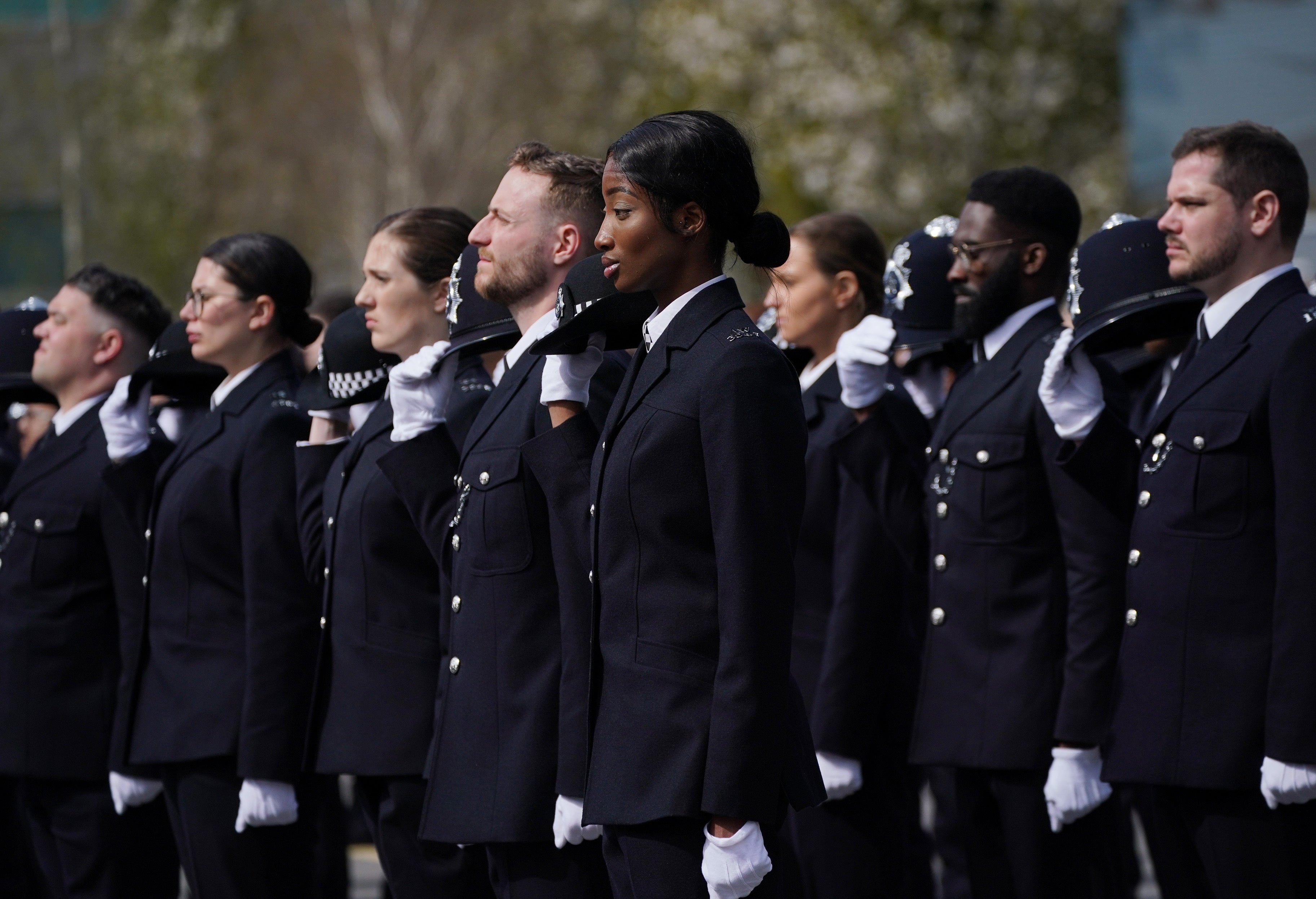Anti-racism plan not about being ‘woke or politically correct’, police insist
A national plan has been launched to tackle discrimination among officers and unfairness in the way black people are treated.

Your support helps us to tell the story
From reproductive rights to climate change to Big Tech, The Independent is on the ground when the story is developing. Whether it's investigating the financials of Elon Musk's pro-Trump PAC or producing our latest documentary, 'The A Word', which shines a light on the American women fighting for reproductive rights, we know how important it is to parse out the facts from the messaging.
At such a critical moment in US history, we need reporters on the ground. Your donation allows us to keep sending journalists to speak to both sides of the story.
The Independent is trusted by Americans across the entire political spectrum. And unlike many other quality news outlets, we choose not to lock Americans out of our reporting and analysis with paywalls. We believe quality journalism should be available to everyone, paid for by those who can afford it.
Your support makes all the difference.Police chiefs have insisted that a new plan to tackle racism among officers is not about political correctness or being “woke”.
The National Police Chiefs Council (NPCC) launched a Police Race Action Plan on Tuesday, aimed at tackling discrimination, addressing unfairness in the way black people are treated, and boosting the number of black officers and staff.
Black people are nine times more likely to be stopped and searched than white people, and five times more likely to have force used upon them.
Confidence levels stand at around 64% among black communities, falling to 54% among black Caribbean people, compared with an average of 74%.
In the foreword to the plan, written by head of professional body the College of Policing Chief Constable Andy Marsh and senior responsible officer for the plan Chief Constable Sir Dave Thompson, the pair said they are “ashamed” of racism among officers.
“We accept that policing still contains racism, discrimination and bias,” they said.
“We are ashamed of those truths, we apologise for them and we are determined to change them. We have much to do to secure the confidence of black people, including our own staff, and improve their experience of policing – and we will.”
The plan, launched on Tuesday, will be put out for public scrutiny before it is updated in December.
Sir Dave told reporters: “I know right from the start this plan faces challenge.
“Some people will feel our words and actions do not go far enough, this has been too slow.
“Others will criticise this as being woke or politically correct policing.
“If you come to the plan with pre-set beliefs, then you’ll find something to criticise about it, I am sure … This plan is about good policing.”
Temporary deputy chief constable Tyron Joyce, the UK’s highest ranking black officer and director of the NPCC programme, said: “How can it be woke to be more legitimate and more effective in how we stop and search people?
“And how can it be woke if all of that results in people feeling safer?”
Many people believe policing to still be institutionally racist and have grounds for this view
The plan aims to create an actively anti-racist police service with zero tolerance for racism, and an “explain or reform” approach where black people are treated differently from their white counterparts.
Andy George, president of the National Black Police Association, said the plan “must be more than a document which ticks boxes”.
“We want and we demand real, lasting change,” he added.
Mr Marsh said the low levels of trust among black people are not sustainable.
“There is a moral and operational imperative to undertake this work,” he said.
“The British principle of policing by consent is built on trust and confidence of the public in the police.
“With that trust comes co-operation, dialogue and crucial sharing of information that is essential for us to tackle crime.
“That trust is far too low among black people, and we are less effective because of it. That is no longer sustainable.”
The 1999 Macpherson Report, written in the wake of the racist murder of Stephen Lawrence, found that the Metropolitan Police was “institutionally racist”.
In the foreword to the NPCC plan, Mr Marsh and Sir Dave said that, while action has been taken since then, “change has not been fast nor significant enough”.
They added: “Many people believe policing to still be institutionally racist and have grounds for this view.”
The plan says there is still “overt racist behaviour in policing”, and aims to create an actively “anti-racist” police service, with zero tolerance of discrimination.
However, both officers and Mr Joyce refused to say whether policing is institutionally racist during a briefing with journalists when the plan was launched.
Mr George and barrister Abimbola Johnson, head of a board that will scrutinise the plan, both agreed that it is.
Black people are under-represented in the police, and officers and staff are more likely to face disciplinary proceedings and less likely to get promoted.
The plan aims to boost both recruitment and retention of black police officers and staff, and bring in an “explain or reform” policy in relation to disparities between the ways black and white people are treated.
There will also be mandatory training on the history of the policing of black people and the ongoing impact of disproportionality, and increased involvement of black community groups in the oversight of policing, as well as plans to improve the service to black victims of crime.
A Home Office spokesperson said “it is clear more needs to be done in policing to ensure everyone is treated fairly and without prejudice, regardless of their race or background”.